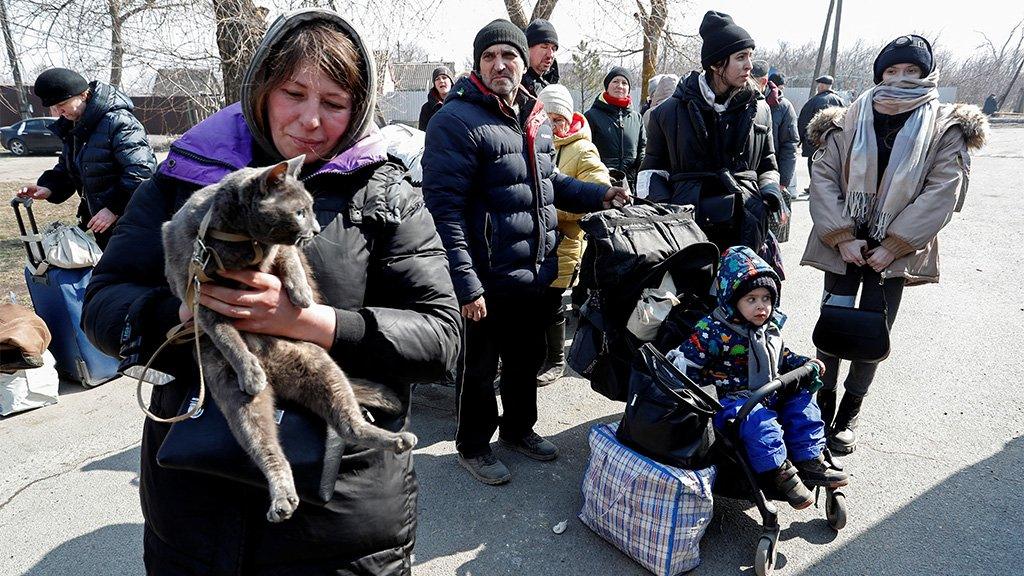Ukraine war: Shock and defiance on Independence Day - round-up
- Published
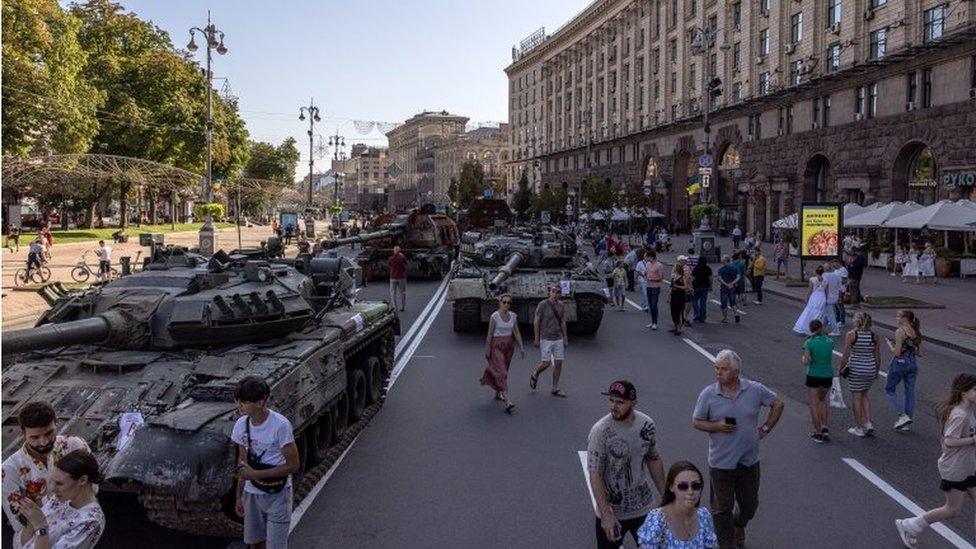
In Kyiv, people walked past Russian armoured military vehicles that were captured in fighting
Wednesday was a significant day for Ukraine, as it marked 31 years of independence from the Soviet Union, and six months since that union's most influential member, Russia, launched its invasion of Ukraine.
In the streets, there was a lingering sense of shock and defiance.
That defiance was shared with their leader, President Volodymyr Zelensky, who has promised to "liberate" all occupied Ukrainian territory, without "concession or compromise".
And he received plenty of support today - Independence Day, a national holiday in Ukraine.
Outgoing UK Prime Minister Boris Johnson travelled to Kyiv again to tell President Zelensky in person that "what happens in Ukraine matters to us all."
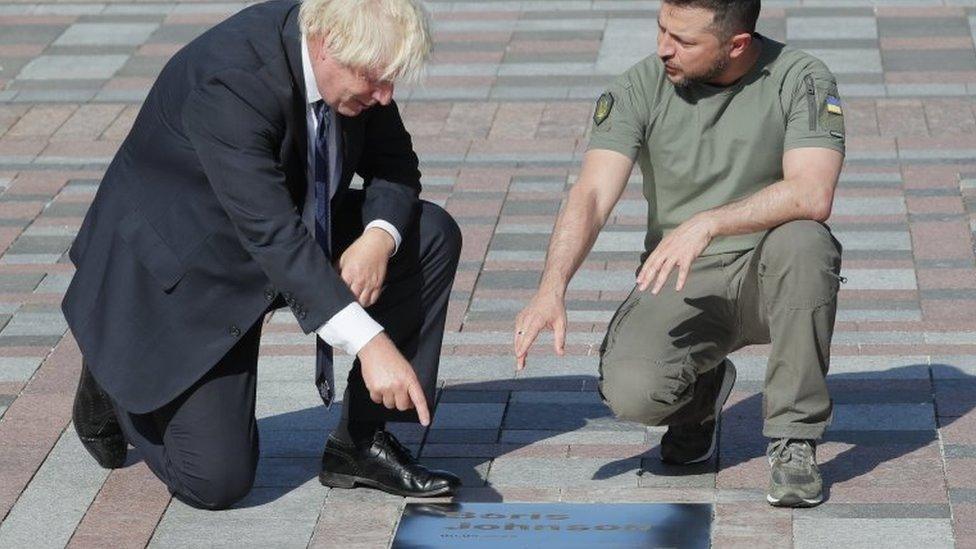
Zelensky and Johnson attend the inauguration of a plate with Johnson's name on the "Walk of the Brave", dedicated to politicians who support Ukraine
US President Joe Biden, for his part, confirmed the US was sending Ukraine nearly $3bn (£2.5bn) in a fresh package of weapons and equipment - the biggest tranche of American security assistance sent to Kyiv to date.
Mr Biden said Ukrainians had "inspired the world with their extraordinary courage and dedication to freedom" - and he vowed that the country would remain a "sovereign and independent nation".
However the horrors of war continued. At least 22 people were killed and a at least 50 injured in a Russian strike at a railway station in the eastern Dnipropetrovsk region, President Zelensky said. Moscow is yet to comment, but has previously denied targeting civilian infrastructure.
Listen to the latest BBC Ukrainecast marking six months since the invasion began.

Shock in Kyiv
Normally, a massive military parade marches to the city centre on Independence Day, but public events in the capital were banned this year because of concerns they could become a target.
Residents of Kyiv have been sharing their thoughts on the war with us.
Watch: Kyiv residents reflect on six months of war with Russia

Remembering the fallen
Across the country, commemorations were held to honour those who have died in the past six months - and more.
In the western city of Lviv, dignitaries and families attended a ceremony at the graves of fallen soldiers in Lychakiv cemetery.
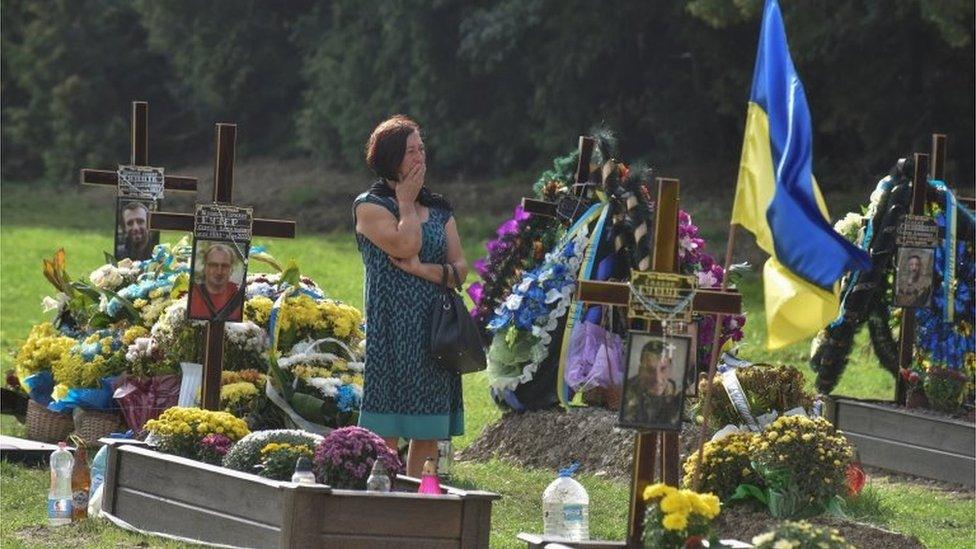
A woman here in tears as she visits the tomb of her relative killed fighting against Russian troops

The war is static, but ousting Russia is a seismic task
Analysis by James Waterhouse, BBC News, Kyiv
So far Western weapons are helping Ukraine to hold the line and frustrate Russian supply lines, but it will take something seismic for the momentum to shift and for Kyiv to force Russia out completely.
Therefore, this military status quo looks set to continue at a growing, unimaginable cost for tens of thousands of families.
Also - while widely viewed as the country's war hero, President Zelensky is now facing criticism for how he prepared for Russia's attack. Notably over his decision not to act on warnings from the US, saying it would cause panic and damage Ukraine's economy.
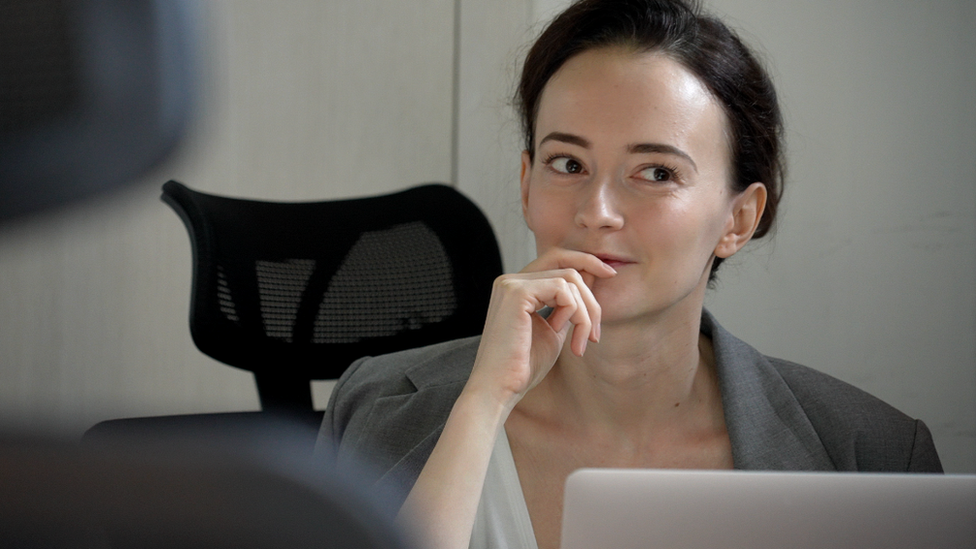
Olga Rudenko, editor-in-chief at the Kyiv Independent, a news website established just weeks before Russia's invasion
Another symbol of Ukrainian defiance is in the newsroom of the Kyiv Independent.
This English language news site was set up weeks before the invasion. Within days their online following went from tens of thousands to millions.
"It's the Independence Day we didn't know was going to happen," says editor-in-chief Olga Rudenko.

Russia goes quiet
By Will Vernon, BBC News, Moscow
Russian officials and state TV have made almost no mention that today is six months since the start of Russia's "special military operation," as the Kremlin likes to call it.
It's possible that the authorities are not keen to emphasise the extent to which the campaign has become drawn out - certainly for much longer than Moscow intended.
State TV channels were leading their news bulletins on Ukraine, but, as usual, the coverage focused on alleged Ukrainian war crimes, such as the alleged shelling of civilian areas, and Russia's diplomatic efforts to resolve the situation around the Zaporizhzhia nuclear power plant.

Last opposition voice 'silenced'
WATCH: Footage shows Russian opposition politician Yevgeny Roizman being led away from his home.
One of Russia's last remaining opposition voices has been detained by police, in the latest crackdown on dissent by the Kremlin.
Yevgeny Roizman, a former mayor of Yekaterinburg near the Ural mountains, was arrested on charges of "discrediting the Russian army", security services said.
The offence, introduced by authorities after the invasion of Ukraine, can carry a sentence of five years in prison.
He was one of the last remaining prominent opposition politicians in Russia who hadn't been killed, arrested, or forced out of the country.

UK fuel imports from Russia cease
The UK imported no fuel from Russia in June for the first time on record, according to official figures.
After pledging to phase out Russian oil imports by the end of the year and gas imports as soon as possible, Russian fuel imports fell by £499m - or 100% - compared with the average for the previous 12 months to February.
Imports of goods from Russia also fell to £33m in June, the lowest level since records began in January 1997, the Office for National Statics (ONS) said.

Where is the fighting taking place?
Ukraine is trying to push back Russian forces in the south whilst Russian troops continue to advance in the east.
Apart from Kherson:
Russian forces are attacking positions south of Izyum
Tensions are particularly high following a string of explosions and attacks in Russian-occupied Crimea


More on the Ukraine conflict:
Related topics
- Published29 July 2022
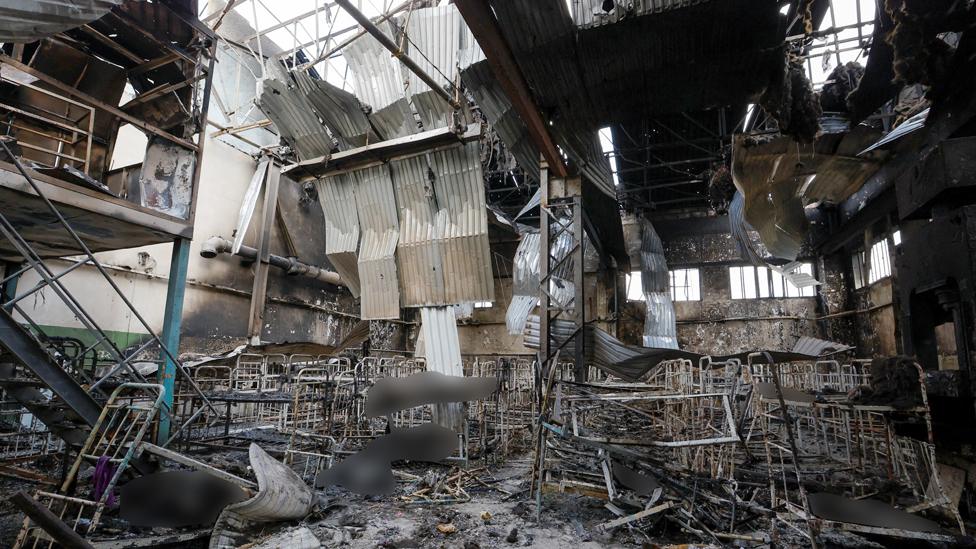
- Published9 June 2022
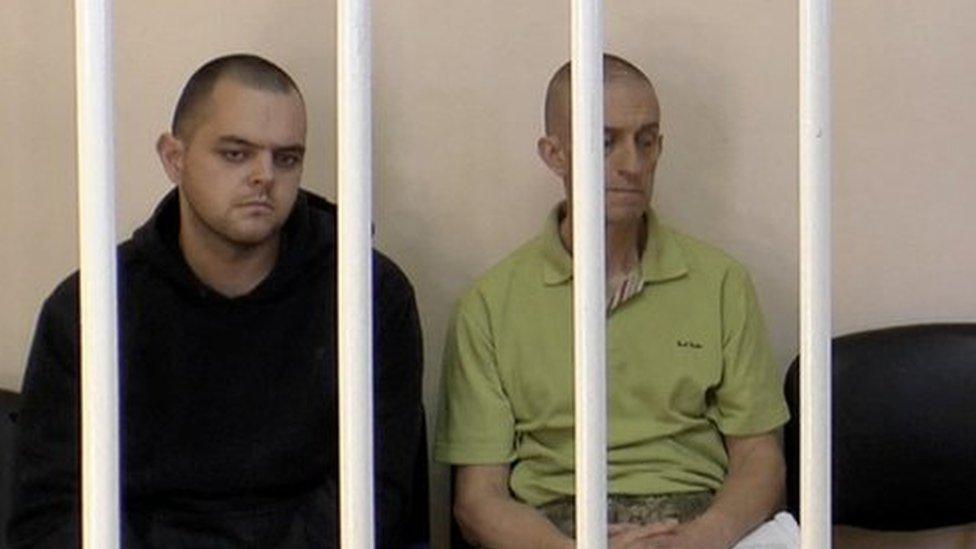
- Published17 May 2022
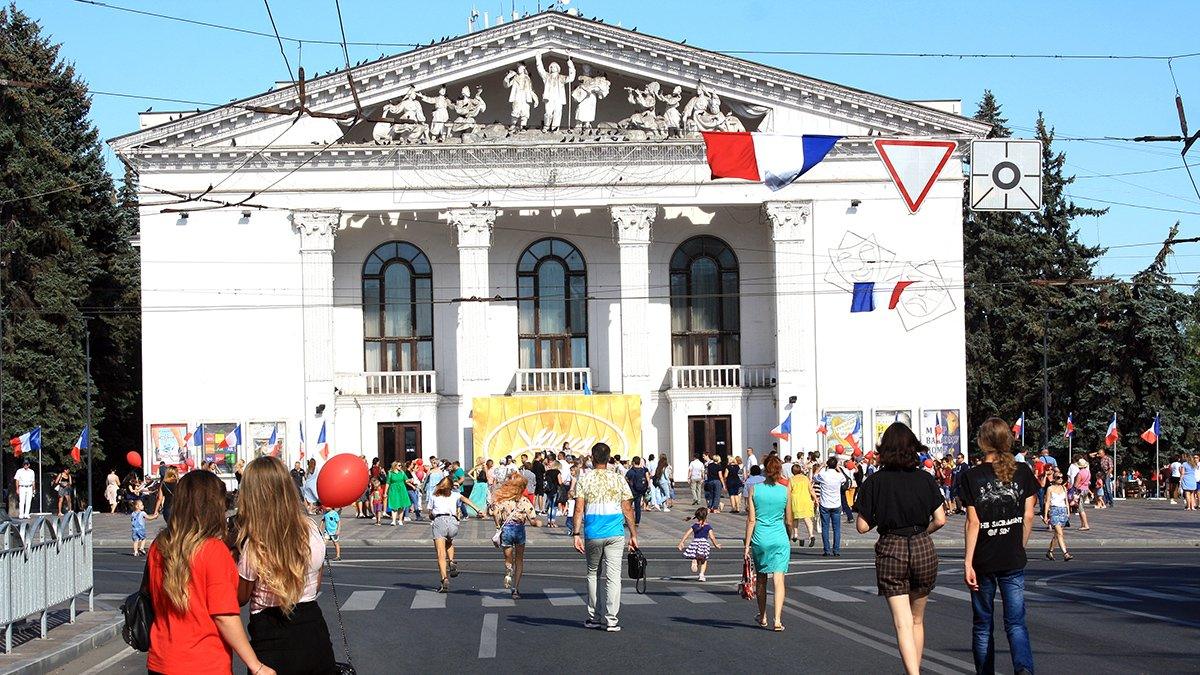
- Published17 May 2022
